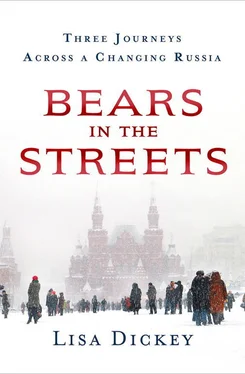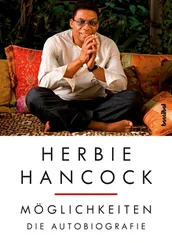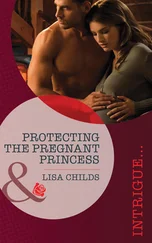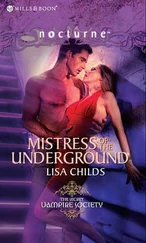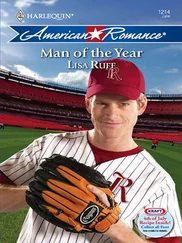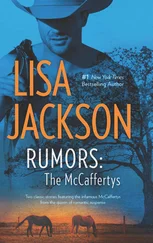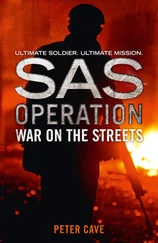Those slogans made me sick! “Long live friendship between nations!” “Long live the Soviet brotherhood!”
So I wrote a critique. When my aunt found out about it, she said, “The black raven is going to come for you,” meaning the black Volga sedans that came for people who were to be arrested.
But nothing bad resulted from that essay. In fact, I got the highest marks.
While studying at the medical institute, Nina met Gennady Shalyopa. The couple married in 1969, and within a few years they had two sons, Boris and Andrey. Life in the 1970s, during Brezhnev’s “period of stagnation,” was for the most part uneventful. “There were no long lines in the 1970s, no terrible shortages,” remembered Nina. “Not in Moscow and Leningrad, anyway. Other parts of Russia had more difficulties as far as getting food products, but things here were fine. We lived modestly, but well.”
This was, perhaps, the calmest period of the Soviet century. Yet Russians in the 1970s were still careful not to say the wrong things to the wrong people.
We didn’t tell anecdotes on the trams, where someone might hear. Things weren’t nearly so paranoid as in the Stalin years, but all the same, people weren’t free to say whatever they wanted.
Once I went to my uncle’s house to visit. He had a friend over, and we all sat around drinking wine. I told a political joke—nothing terrible, just poking a little fun. My uncle laughed, but his friend looked at me and said very seriously, “That’s not funny. They put people in jail for jokes like that. And rightly so.”
The seventies were a time when Soviets passed around mimeographed copies of banned writings and shared cassette tapes with fuzzy recordings of Western bands. “Of course I read banned literature whenever I could,” said Nina. “But I wouldn’t say it was something I was obsessed with. There was a lot of good literature that could be had legally.”
In 1979, when Nina was offered a position as the head of a city medical department, she was invited to join the Communist Party. She declined. “Part of the reason I turned them down,” she told me, “is because I didn’t want that job. In those days, it was impossible to take a job like that without joining the Party… Who knows what I would have done if I had really wanted it? Even I don’t know.
“The idea of Communism itself is not bad,” she said. “But the fulfillment of it in this country was very, very bad. Once I realized that, I didn’t want to have anything to do with it. I remained very apolitical.”
* * *
In the early 1980s, the quick, successive deaths of aged apparatchiks Leonid Brezhnev, Yuri Andropov, and Konstantin Chernenko paved the way for new leadership in the Soviet Union. U.S. president Ronald Reagan began to escalate Cold War rhetoric, and Russia’s future looked uncertain. But no one realized just how uncertain until Mikhail Gorbachev came to power in 1985 and started shaking up the government.
“Gorbachev spoke without notes; he just talked. That was the amazing thing,” said Nina’s son Boris, who was 15 when Gorbachev came to power. “He was young and dynamic, not like Brezhnev, who could barely speak. We had a sense that he would fight against the things that we didn’t like about the Soviet Union, and everybody began to be interested in politics.”
The twin policies of perestroika (restructuring) and glasnost (openness) became part of the world lexicon, and things began changing quickly in the creaking behemoth of the USSR. For young people like Boris, the transformation was exhilarating. “When Gorbachev initiated perestroika, I thought, It’s about time! ” he told me.
But that enthusiasm turned to disillusionment in the late eighties, years that saw terrible food shortages all over Russia. When Gorbachev declared limits on alcohol production, sugar disappeared from store shelves, snatched up as a vital ingredient in homemade liquor. There were also chronic shortages of butter, flour, tea, and other essentials.
“In the end,” said Boris, a handsome, bearded man with a passing resemblance to Billy Crystal, “Gorbachev himself became a barrier to the reforms he started. He was afraid to do more. He lost control of the situation.” By the early 1990s, Gorbachev had lost control altogether, and in 1991 he resigned his presidency and dissolved the Soviet Union.
For Boris, the fall of the Soviet Union was no tragedy. “The USSR was an artificially created entity; Kazakhs, Azeris, and other nationalities that were brought into the Soviet Union are completely unrelated to Russians,” he said. “They should have their own countries.” During the putsch attempt of 1993, when members of the Russian parliament attempted to overthrow President Yeltsin, Boris went to St. Petersburg’s Mariinsky Square, where hundreds of people gathered to listen for news from Moscow. After initial anxiety, he decided everything would be fine after noticing “how calm everyone was on the square. Nobody was yelling, or panicking. The whole place was quiet.”
Now, Boris said, “Things are better than they were five years ago. The ghost of hunger has disappeared from Russia. If you work, you can earn money, and now you can buy everything here. Yes, there are some pensioners who are suffering, but Russia is enduring growing pains now. It’s all part of the historical process. Some will suffer, some will die, but the process itself is unstoppable.”
* * *
Six-year-old Vanya was born in 1989, as the Soviet Union was wheezing toward its final collapse. When I met him in 1995, his father Dima worked as a distributor of wholesale eyeglasses and his mother, Zhenya, sold Mary Kay cosmetics. His parents planned for Vanya, then in kindergarten, to go to a special school the following year, where students took intensive courses in English—the “language of the twenty-first century,” as they called it.
Gary snapped photos as Vanya’s great-great-grandmother, Maria Mikhailovna, stretched out her gnarled old hands to pull him close. “Come here,” she said, taking his small, smooth hand in hers. “He’s a good boy, a smart boy,” she said of the child 92 years her junior. “Who knows what the future will be like for this country? But he will do well.”
Ten years later, as I prepared to meet with 16-year-old Vanya, I wondered if his great-great-grandmother’s prediction would turn out to be true.
* * *
When David and I arrived in St. Petersburg in 2005, I called Boris. He had moved into his grandmother Lia’s apartment, overlooking the House of Soviets office complex in the south of the city, and he invited us to come for a visit with him and his mother, Nina. The apartment looked much the same as it did a decade earlier, with the small kitchen virtually unchanged and the walls in one room covered with framed photos of Maria Mikhailovna, Lia, and other family members. Boris made tea, and he and his mother gave me updates on the family.
Maria Mikhailovna died four months after our interview, at age 99. The night before she died, she had enjoyed a few sips of cognac with a family friend who’d stopped by; when someone told her she shouldn’t be drinking at her age, she’d snapped, “As long as I’m alive, I’ll do what I want!” She had hoped to live to see the first day of spring in 1996, but she missed it by one day.
Lia, too, was gone, having succumbed at age 76 to complications from hypertension. She died in this very apartment, in Nina’s arms, after months of being ill. “She didn’t want to see anyone, or to eat,” Nina told me. “She just lay in her bed. I’d say, ‘Do you want to listen to music?’ and she’d tell me with her eyes.” At the memory, Nina’s own eyes welled up. “She was very demanding in life, but in death she was just the opposite. She just lay in her bed as I took care of her.”
Читать дальше
